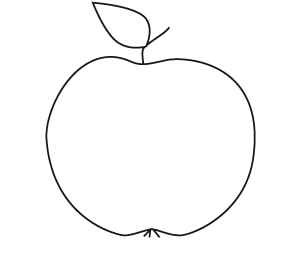The Five Points of Yoga
Proper Diet

Besides being responsible for building our physical body, the foods we eat profoundly affect our mind. For maximum body-mind efficiency and complete spiritual awareness, Yoga advocates a lacto-vegetarian diet. This is an integral part of the Yogic lifestyle.
The yogic diet is a vegetarian one, consisting of pure, simple, natural foods which are easily digested and promote health. Simple meals aid the digestion and assimilation of foods. Nutritional requirements fall under five categories: protein, carbohydrates, minerals, fats and vitamins. One should have a certain knowledge of dietetics in order to balance the diet. Eating foods first-hand from nature, grown in fertile soil (preferably organic, free from chemicals and pesticides) will help ensure a better supply of these nutritional needs. Processing, refining and overcooking destroy much food value.
There is a cycle in nature known as the "food cycle" or "food chain". The Sun is the source of energy for all life on our planet; it nourishes the plants (the top of the food chain) which are then eaten by animals (vegetarian), which are then eaten by other animals (carnivores). The food at the top of the food chain, being directly nourished by the Sun, has the greatest life promoting properties. The food value of animal flesh is termed as "second-hand" source of nutrition, and is inferior in nature. All natural foods (fruits, vegetables, seeds, nuts and grains) have, in varying quantities, different proportions of these essential nutrients. As source of protein, these are easily assimilated by the body. However, second-hand sources are often more difficult to digest and are of less value to the body's metabolism.
Many people worry about whether they are getting enough protein, but neglect other factors. The quality of the protein is more important than the quantity alone. Dairy products, legumes, nuts and seeds provide the vegetarian with an adequate supply of protein. The high protein requirement still being used by many Health Departments is based on antiquated data and has been scientifically disproved many times in the laboratory.
A healthy motto is: "Eat to live, not live to eat". It is best if we understand that the purpose of eating is to supply our being with the lifeforce,or Prana, the vital life energy. So the greatest nutritional plan for the Yoga student is the simple diet of natural fresh foods.
However, the true Yogic diet is actually even more selective than this. The Yogi is concerned with the subtle effect that food has on his mind and astral body. He therefore avoids foods which are overly stimulating, preferring those which render the mind calm and the intellect sharp. One who seriously takes to the path of Yoga would avoid ingesting meats, fish, eggs, onions, garlic, coffee, tea (except herbal), alcohol and drugs.
Any change in diet should be made gradually. Start by substituting larger portions of vegetables, grains, seeds and nuts until finally all flesh products have been completely eliminated from the diet.
The Yogic diet will help you attain a high standard of health, keen intellect and serenity of mind. To really understand the Yogic approach to diet one has to get familiar with the concept of the 3 Gunas or qualities of nature.


